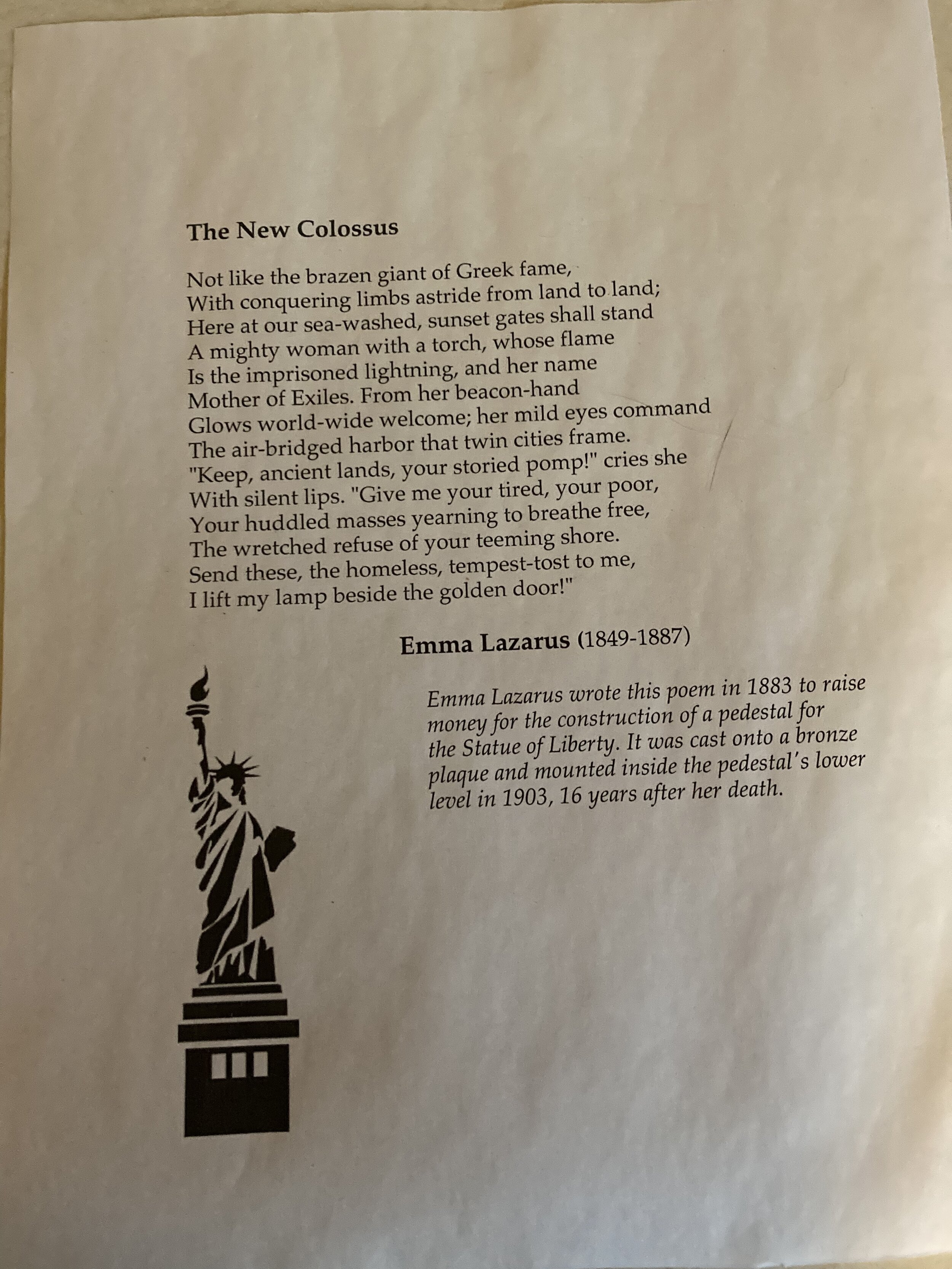Few poems have been as impactful as Emma Lazarus’s “The New Colossus,” something I didn’t know until this year, when a colleague and I taught a unit on ekphrastic poetry, poems written in response to works of art. She provided an art historian’s perspective on the Statue of Liberty. I brought in Lazarus’s poem, with its famous lines now written on a plaque on the sculpture’s base.
Lazarus wrote the poem as a donation to an effort to fund the statue, somewhat begrudgingly. She died in 1887, a year after the statue was dedicated. More than 15 years later, the once-forgotten poem found its home on the plaque through Lazarus’s friends, who wanted to give her a fitting memorial. But ultimately, the poem changed how people the world over view the Statue of Liberty. What was intended as a monument of “republican ideals” and the friendship between the U.S. and France became instead an international symbol of hope, of welcome, of the country’s open arms toward immigrants and refugees. And thus it remains.
Lesson over.
This is what poetry can do.
“Give me your tired, your poor,
Your huddled masses yearning to breathe free,
The wretched refuse of your teeming shore.”
